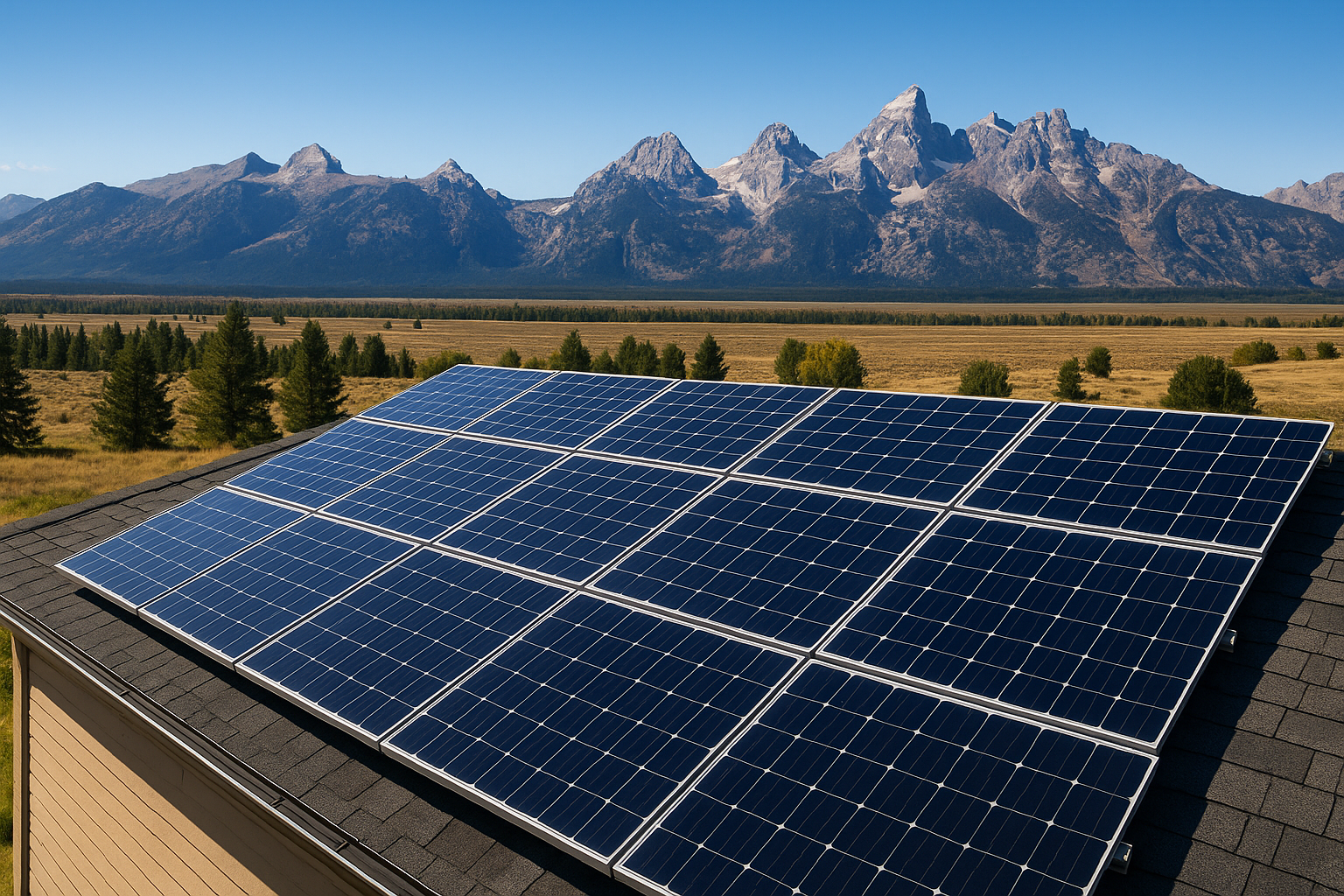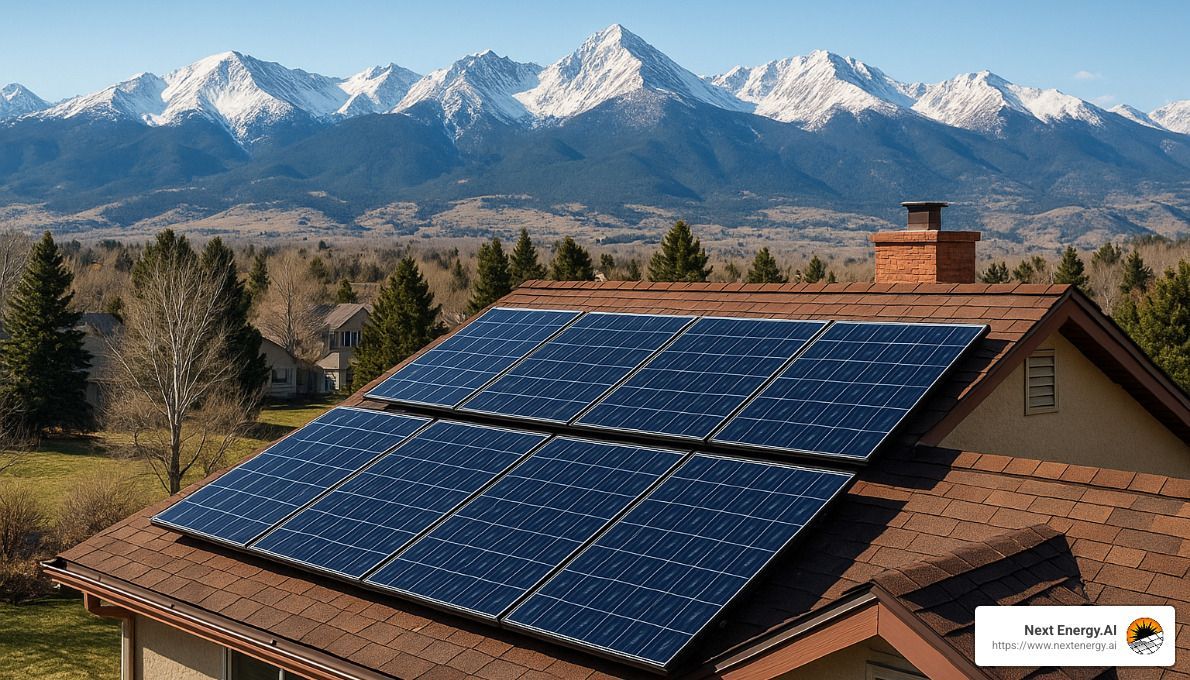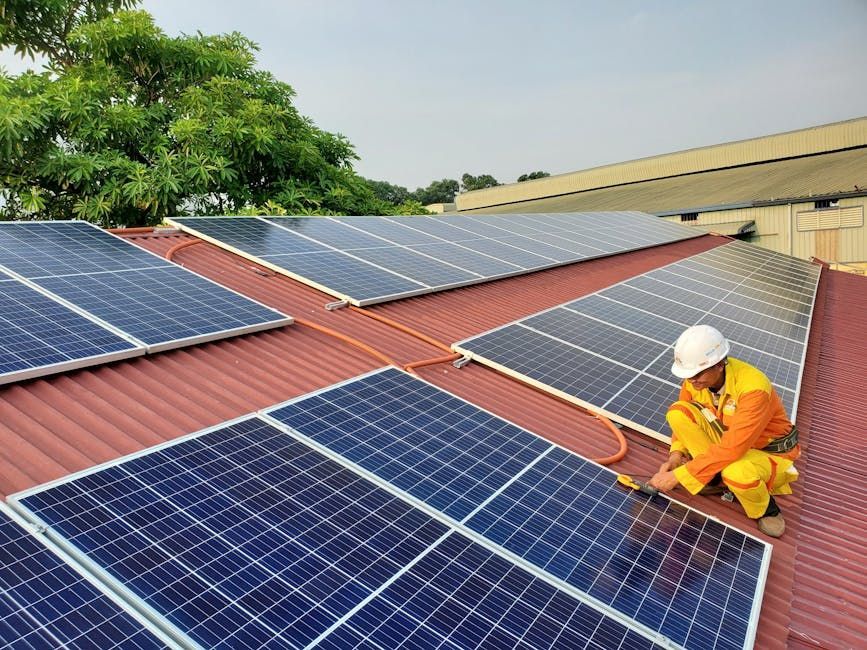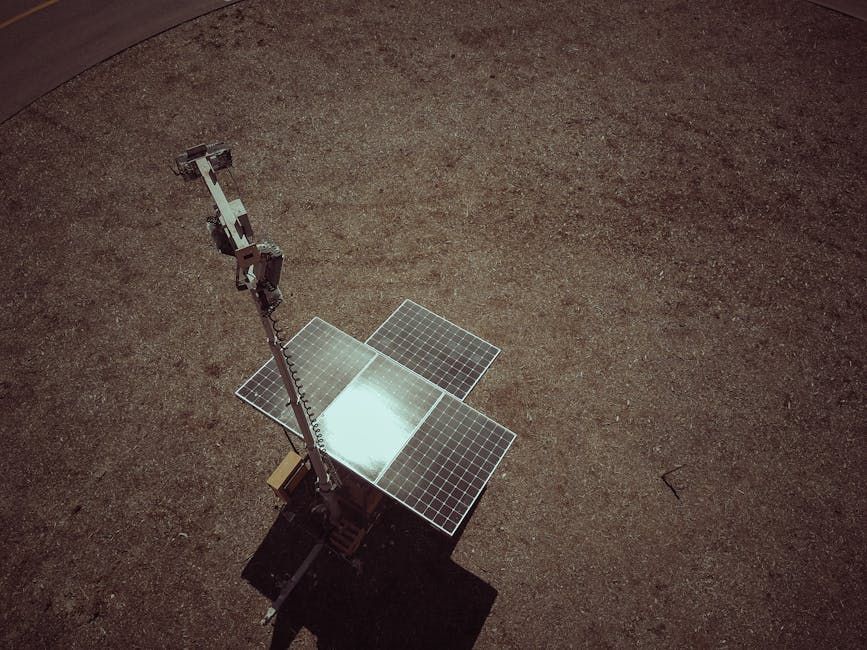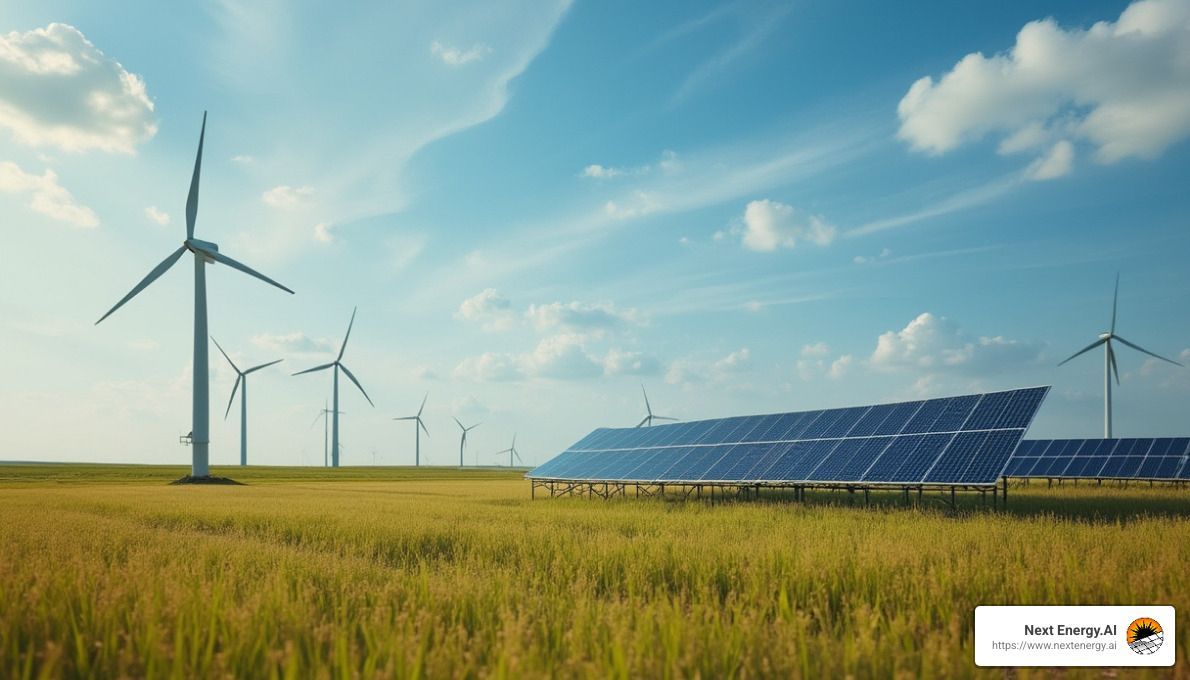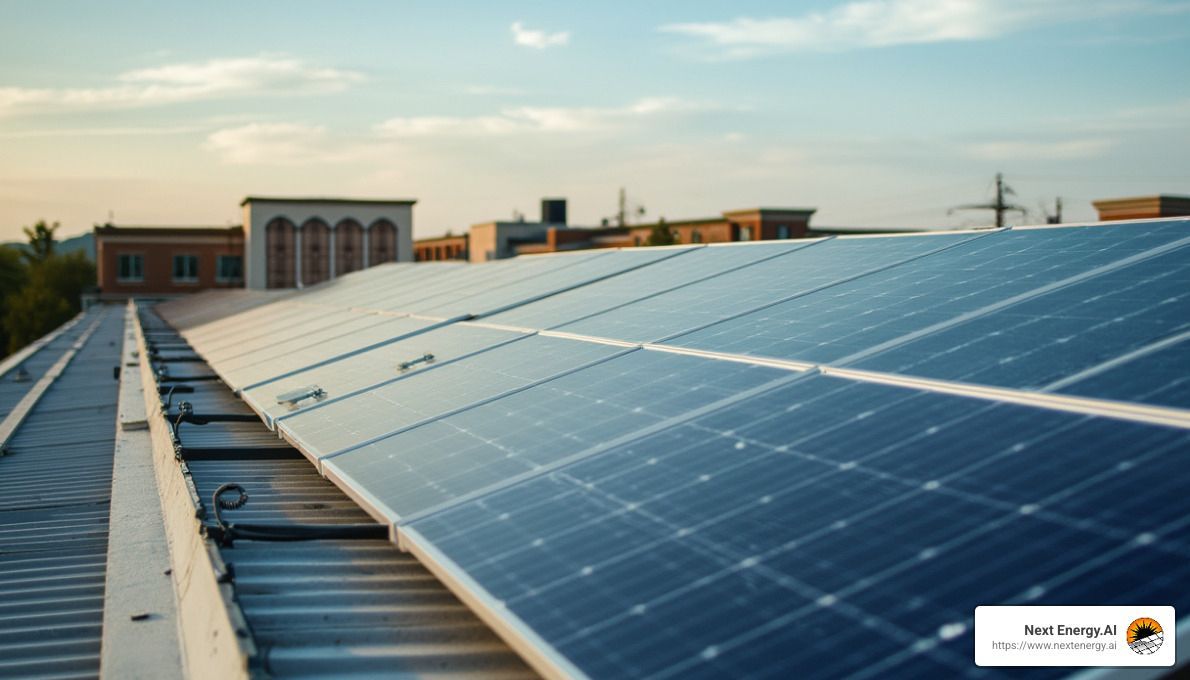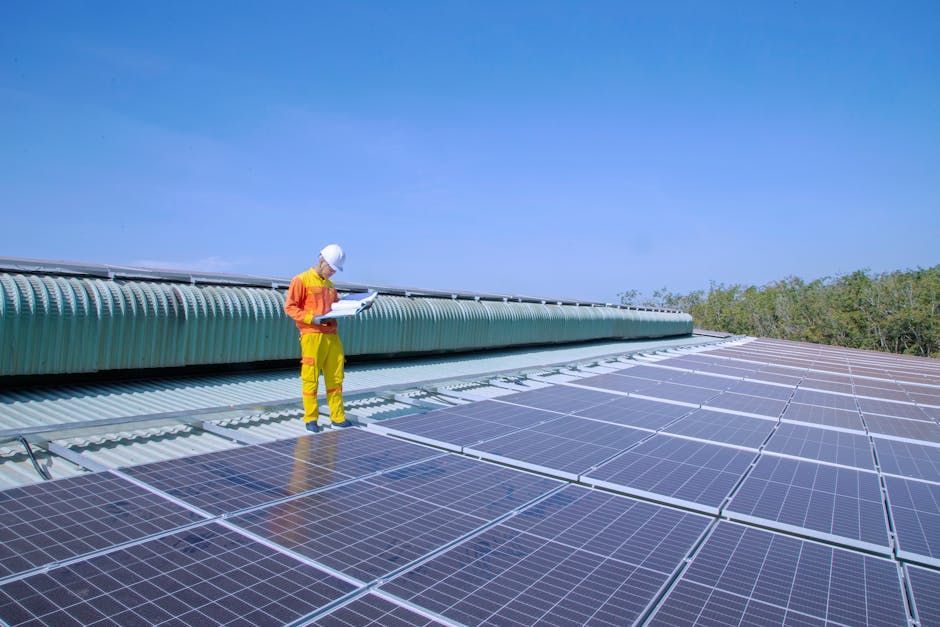Bright Ideas: AI's Role in Solar Energy
AI in solar energy is revolutionizing how we harness and manage solar power. By integrating artificial intelligence into solar energy systems, we can optimize energy production, anticipate maintenance needs, and improve efficiency. Here's a quick glimpse into how AI is changing the landscape of solar energy:
- Energy Optimization: AI algorithms improve solar panel performance by adjusting parameters based on weather data and energy usage patterns.
- Predictive Maintenance: AI predicts potential system failures before they occur, minimizing downtime and reducing repair costs.
- Solar Forecasting: Advanced AI systems predict solar energy production by analyzing weather forecasts, ensuring better energy management.
- Energy Storage Optimization: AI helps manage battery storage by aligning with real-time energy demands, maximizing stored energy use.
- Improved Asset Management: AI tools provide data-driven insights for better management of solar assets, increasing efficiency and longevity.
When energy demands are growing, AI integration with solar technology is more than a bright idea—it's a necessity. With AI, solar energy transitions from an intermittent power source to a reliable and efficient energy provider.
I'm Spencer Gordon, the CEO and President of NextEnergy.ai, with experience in AI in solar energy. Our company is committed to using AI to make solar power more accessible and practical for homeowners, particularly in Northern Colorado. I'm excited to explore how AI continues to shape our energy landscape in this article.
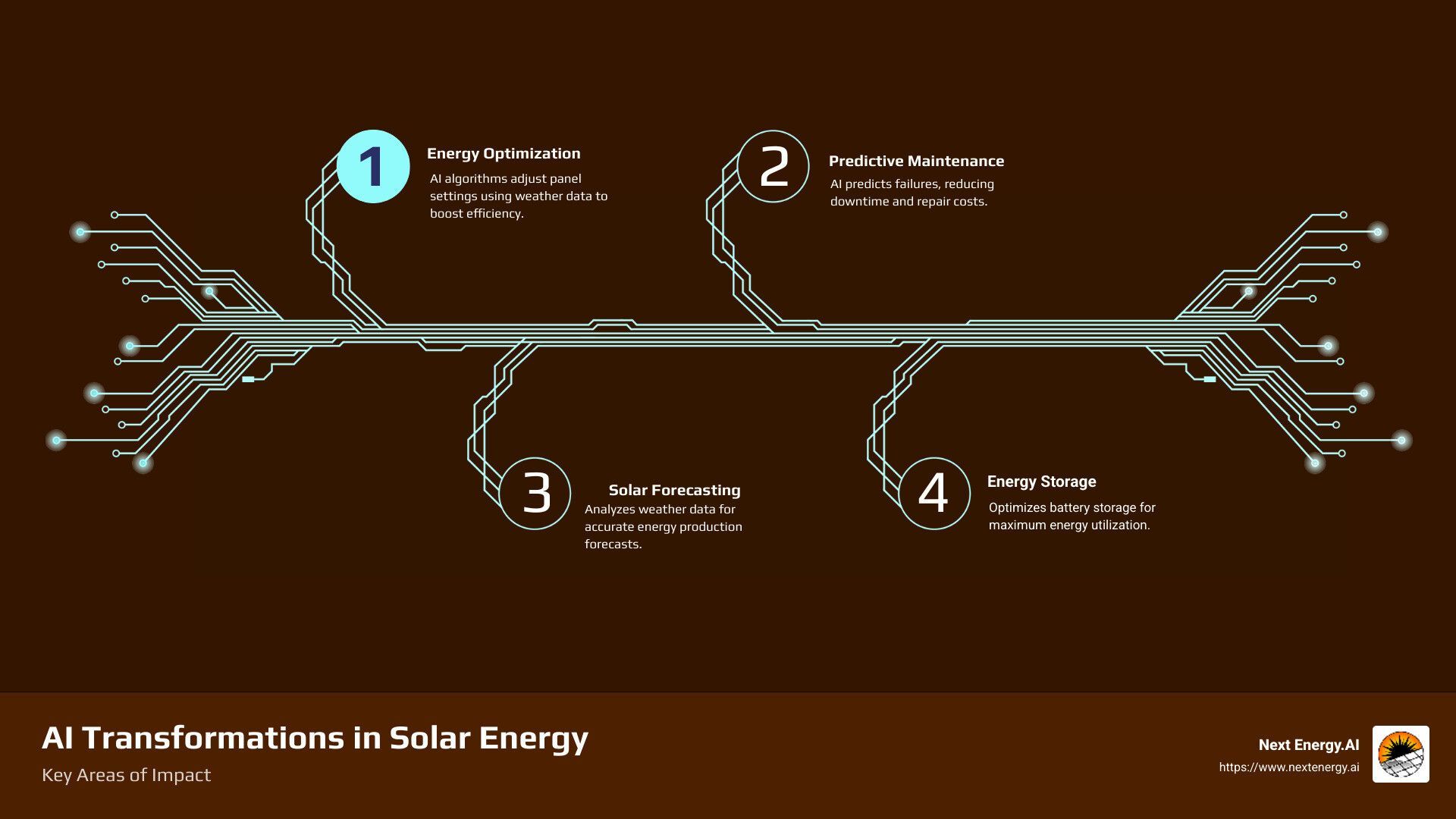
AI in Solar Energy: Changing the Industry
AI is changing the solar energy industry by optimizing energy production and predicting maintenance needs, making solar power more efficient and reliable.
AI Algorithms for Energy Optimization
AI algorithms play a crucial role in enhancing the performance of solar panels. By analyzing data from weather forecasts and energy consumption patterns, AI can adjust solar panel settings to maximize energy output. This means that even on cloudy days, solar panels can generate more power than before.
Predictive Maintenance: Preventing Problems Before They Occur
Predictive maintenance is one of the standout benefits of AI in solar energy. By continuously monitoring solar panel systems, AI can detect anomalies and predict potential failures before they happen. This proactive approach reduces downtime and saves on costly repairs.
Energy Optimization: Maximizing Efficiency
AI helps in optimizing energy usage by learning from past data and predicting future energy demands. This ensures that energy is used efficiently, reducing waste and cutting down on energy costs. For example, AI can manage when to store energy in batteries and when to release it, ensuring that energy is available when needed most.
By integrating AI into solar energy systems, we can make solar power a more dependable and efficient energy source. As Spencer Gordon, CEO of NextEnergy.ai, highlights, "AI is not just enhancing solar energy; it's revolutionizing it, making it more accessible and practical for everyone."
This integration is crucial as the demand for sustainable energy solutions continues to rise, ensuring that solar energy remains a key player in our energy future.
Key Innovations in AI-Improved Solar Solutions
AI is making waves in the solar energy sector with several groundbreaking innovations. Let's explore some of the key advancements that are reshaping how we harness solar power.
Solar Panel Optimization
AI algorithms are revolutionizing how solar panels are positioned and oriented. By analyzing satellite images, weather data, and topographical maps, AI determines the best placement and angle for solar panels. This optimization ensures panels capture the maximum sunlight possible, significantly boosting energy production.
Predictive Maintenance
Predictive maintenance uses AI to foresee equipment failures before they occur. Sensors on solar panels and inverters collect performance data, which AI analyzes to spot anomalies. Maintenance teams receive alerts to address issues proactively, reducing downtime and extending equipment life.
Solar Forecasting
AI takes solar forecasting to the next level by predicting energy production based on weather patterns and historical data. This helps utilities balance energy supply and demand more effectively, ensuring grid stability and reducing reliance on non-renewable sources during peak periods.
Energy Storage Optimization
Energy storage systems are becoming smarter with AI. By analyzing energy usage patterns and market conditions, AI optimizes when to store and release energy. This not only maximizes the use of stored energy but also improves profitability by adapting to real-time market demands.
Solar Asset Management
Managing solar assets becomes more efficient with AI-based tools. These tools monitor the performance of solar panels, inverters, and other components, providing real-time insights. This constant vigilance improves system reliability and reduces maintenance costs.
By embracing these innovations, companies like Next Energy.AI are not just participating in the solar energy revolution—they are leading it. As AI continues to evolve, we can expect even more exciting developments in solar energy solutions.
Overcoming Challenges with AI in Solar Energy
While AI in solar energy offers numerous benefits, it also brings challenges that need addressing. Let's explore these problems and how they're being tackled.
Grid Integration
Integrating solar energy into the existing power grid can be complex. Solar energy is variable, depending on weather and time of day. AI helps mitigate this by analyzing patterns and predicting solar power generation. This allows grid operators to manage supply and demand more effectively. AI-driven insights enable smoother integration, ensuring that solar energy contributes to a stable and reliable grid.
Predictive Maintenance
AI's ability to predict maintenance needs is a game-changer. However, implementing predictive maintenance requires robust data management. Solar installations generate vast amounts of data from sensors and IoT devices. AI analyzes this data to identify potential issues before they escalate. This proactive approach reduces downtime and maintenance costs, but requires a solid infrastructure to handle the data effectively.
Data-Driven Insights
AI delivers powerful data-driven insights, but the quality of these insights depends on the data's accuracy. Inaccurate or incomplete data can lead to erroneous conclusions. Ensuring data quality and consistency is crucial. AI systems must be compatible with various data formats, including numerical and time-series data from sensors. This compatibility is essential for reliable decision-making in solar energy management.
Cybersecurity Risks
With AI's growing role in solar energy, cybersecurity becomes a critical concern. AI systems are vulnerable to cyberattacks, which can disrupt energy supply and compromise data integrity. The 2015 power grid hack in Ukraine highlights these risks. Protecting AI systems from cyber threats requires robust security measures, including encryption and regular security audits. Ensuring cybersecurity is vital to maintaining trust in AI-driven solar energy solutions.
By addressing these challenges, the solar energy industry can fully harness the potential of AI, paving the way for a more efficient and sustainable future.
The Future of AI in Solar Energy
The future of AI in solar energy is brimming with potential. From advanced materials to autonomous systems, AI is set to revolutionize how we harness the sun's power.
Advanced Materials
AI is playing a crucial role in the development of new materials for solar panels. By analyzing vast datasets, AI can identify materials with improved efficiency and durability. This leads to solar panels that are not only more effective but also longer-lasting. As AI continues to evolve, we can expect solar panels that capture more sunlight and convert it into energy more efficiently.
Autonomous Systems
Imagine a solar farm that runs itself. With AI, this is becoming a reality. Autonomous systems equipped with AI can monitor and manage solar installations without human intervention. They can adjust panel angles, clean surfaces, and even perform basic maintenance tasks. This reduces the need for manual labor and ensures that solar farms operate at peak efficiency.
AI-Driven Energy Management
AI-driven energy management systems are changing how we use solar energy. These systems optimize energy consumption by analyzing usage patterns and predicting future needs. They can automatically adjust energy distribution to ensure that solar power is used efficiently, reducing waste and lowering costs for consumers. This smart management is key to integrating solar energy into everyday life seamlessly.
Blockchain Integration
Blockchain technology is finding its way into the solar energy sector, thanks to AI. By using blockchain, solar energy transactions can be made more transparent and secure. This integration allows for peer-to-peer energy trading, where individuals can buy and sell solar power directly. AI manages these transactions, ensuring they are efficient and fair. This could democratize energy access and make solar power more accessible to everyone.
The future of AI in solar energy is not just about improving technology; it's about creating a sustainable and efficient energy ecosystem. As AI continues to advance, we can look forward to a world where solar energy is smarter, more efficient, and more accessible than ever before.
Frequently Asked Questions about AI in Solar Energy
How is AI used in solar energy?
AI is changing the solar energy sector by providing real-time responses and optimizing energy management. These smart systems analyze energy consumption patterns and adjust energy distribution automatically. This ensures that solar power is used efficiently, which helps in demand management and boosts energy efficiency.
For instance, AI can turn off non-essential appliances during peak demand times or adjust the temperature in homes to save energy. This proactive approach not only conserves energy but also reduces costs for homeowners.
Can AI predict solar energy output?
Yes, AI can predict solar energy output with impressive accuracy. By using weather forecasting and historical data analysis, AI systems can estimate how much solar energy will be generated. These predictions are crucial for planning and managing energy resources effectively.
AI algorithms analyze patterns in weather data, such as cloud cover and sunlight intensity, to predict solar energy generation. This capability allows for better energy planning and helps ensure that there is enough power to meet demand, even on cloudy days.
What are the benefits of AI in solar energy?
The benefits of AI in solar energy are numerous and impactful. Here are some key advantages:
- Cost Reduction: AI optimizes energy usage, which leads to lower electricity bills for consumers. By predicting maintenance needs, AI reduces the risk of costly repairs and downtime.
- Efficiency Improvement: AI ensures that solar panels and energy systems operate at peak efficiency. This means more energy is generated and used effectively, maximizing the return on investment for solar installations.
- Grid Stability: By predicting energy demand and supply, AI helps maintain grid stability. It can balance the load on the grid, preventing overloads and ensuring a steady supply of electricity.
Incorporating AI into solar energy systems not only improves efficiency but also makes renewable energy more reliable and accessible. As AI technology continues to evolve, its role in enhancing solar energy will only grow, paving the way for a more sustainable future.
Conclusion
As we wrap up our exploration of AI in solar energy, it's clear that the integration of AI is reshaping how we harness and manage solar power. At Next Energy.AI, we're at the forefront of this change, offering AI-improved solar solutions that not only optimize energy usage but also contribute to a more sustainable future.
Our innovative approach combines cutting-edge technology with solar energy to create intelligent energy management systems. These systems maximize the efficiency of solar panels, ensuring that every ray of sunlight is put to optimal use. By doing so, we help our customers reduce costs, improve energy efficiency, and contribute to grid stability.
Looking ahead, the future of solar energy is bright. With AI advancements, we're moving towards autonomous systems and smarter energy management. This means less reliance on fossil fuels and a stronger push towards a cleaner, greener planet. Our commitment at Next Energy.AI is to continue driving these innovations, ensuring that solar energy remains a viable and sustainable solution for generations to come.
Join us on this journey towards a sustainable energy future. Find how our AI-improved solar solutions can benefit you by visiting our Arvada location page and taking the first step towards a more efficient and eco-friendly energy system.
